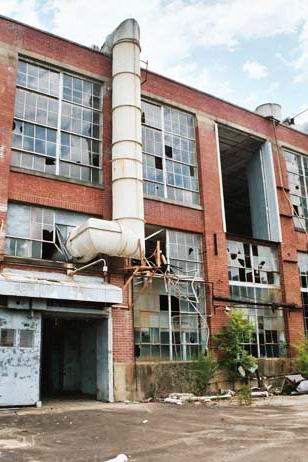
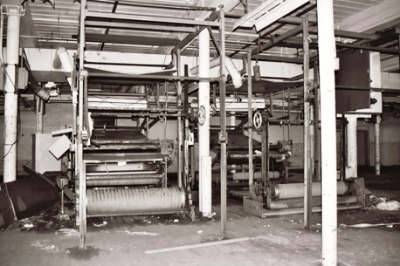
William Gregg, born in Columbia, SC in 1836, was the man who saw the value of milling textiles in Horse Creek Valley, built the Graniteville Mill, and, by extension, fathered textile mills from Aiken, SC to the Georgia state line. At first, Gregg was very much in favor of slave-labor. Gregg himself on the two reasons for using slaves in the mills: "First, you are not under the necessity of educating them, and have, therefore, their uninterrupted services from the age of eight years. The second is that when you have your mill filled with expert hands, you are not subjected to the change which is constantly taking place with whites. We possess the cheapest, steadiest, and most easily controlled labor to be found in the United States. All concur that there is no difference as to the capability; the only question is whether hired labor is not cheaper than slave labor." As usual, all the quotes and attendant info is from Richard Pierce and the Alicia Patterson Foundation, whom I thank for being so unknowingly generous.
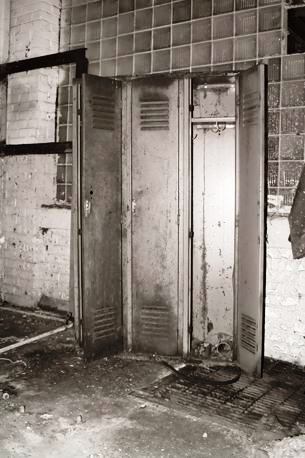
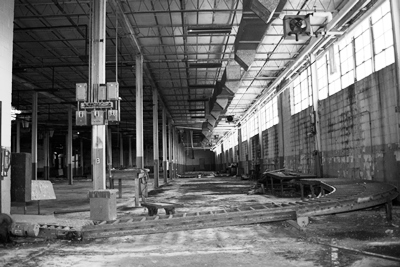
But the captains of industry were also afraid of the poor white population. James Taylor, involved in the founding of the Graniteville Mill, said this: "So long as these poor but industrious people could see no mode of living except by a degrading operation of work with the negro upon the plantation, they were content to endure life in its most discouraging forms, satisfied that they were above the slave, though faring often worse than he. (But now) the great mass of our poor white population begin to understand that they have rights and that they too are entitled to some of the sympathy which falls upon the suffering. It is this great upbearing of our masses that we are to fear, so far as our institutions are concerned. Crowd from these employments the fast increasing white population of the South, and fill our factories and workshops with our slaves, and we shall have in our midst those whose very existence is in hostile array to our institutions." So, by giving poor whites hard, dangerous mill work at low pay you not only pacify them, but increase your profit. Nice.
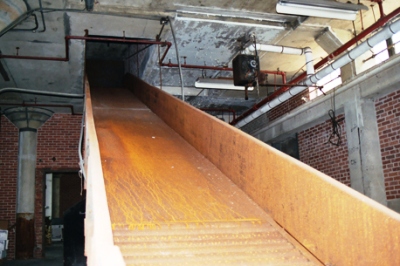
However, some of the sins of the father, whether real or imagined, may have been visited on the son. In 1876, at a stockholders' meeting, someone shot James Gregg, William's heir. A young man, Bob McEvoy, who had only one leg and worked as an office boy in the mill before disappearing two years prior, was the shooter. No one ever knew why McEvoy shot Gregg--McEvoy didn't say before the noose was tied around his neck. It might say something about the culture of the mill towns to note that, while citizens professed to be fiercely loyal to the mills, Bob McEvoy became a folk hero. The citizens thought Bob was smart and said his mind was "a powerful one." In fact, his father was so afraid doctors would dig the corpse up to dissect the brain that he buried his son in the corner of his yard where he could watch over the grave. At one point in the 1970's Cormac McCarthy and Richard Pearce were working on a fictionalized screenplay about McEvoy and the shooting of Gregg. I don't believe it was ever finished. But, geez, I really wish it had been.

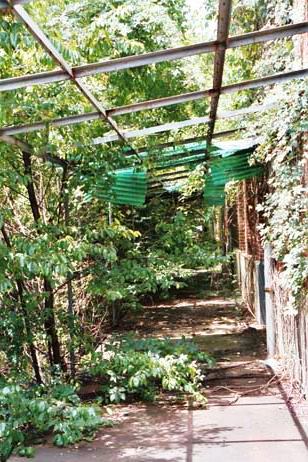 In 1829, the voting rights of poor Irish peasants were rescinded. Here's what Richard Pearce said: "No longer politically useful and unable to pay rent, the cottier peasant and his family were driven from what little holdings they had and literally placed on the ship that was to carry them on one of the most extraordinary migrations in history. To understand the scale of this social upheaval, for example, during just three years from 1849-51 over a million persons were evicted by Irish landlords. To these vast numbers of newly dispossessed families, the destination mattered little. For Irish immigration during these terrible decades was an exodus, a flight. Oscar Handlin, the noted historian of Boston's immigrant population, quotes The Cork Examiner: 'The immigrants of this year are not like those of former ones; they are now actually running away from fever and disease and hunger, with money scarcely sufficient to pay passage for and find food for the voyage.'" This explains all the Irish graves in Magnolia cemetery (see: Ghoul's Night Out). Bob McEvoy's father was also one of these immigrants. Cloutezze Friday Johnson, the granddaughter of another Irish immigrant, had this to say about her father: "In fact, though, I think if he had ever had the opportunity I think he would have liked to do something else than work in the cotton mill. But that was all he knew to do because had never known anything else."
In 1829, the voting rights of poor Irish peasants were rescinded. Here's what Richard Pearce said: "No longer politically useful and unable to pay rent, the cottier peasant and his family were driven from what little holdings they had and literally placed on the ship that was to carry them on one of the most extraordinary migrations in history. To understand the scale of this social upheaval, for example, during just three years from 1849-51 over a million persons were evicted by Irish landlords. To these vast numbers of newly dispossessed families, the destination mattered little. For Irish immigration during these terrible decades was an exodus, a flight. Oscar Handlin, the noted historian of Boston's immigrant population, quotes The Cork Examiner: 'The immigrants of this year are not like those of former ones; they are now actually running away from fever and disease and hunger, with money scarcely sufficient to pay passage for and find food for the voyage.'" This explains all the Irish graves in Magnolia cemetery (see: Ghoul's Night Out). Bob McEvoy's father was also one of these immigrants. Cloutezze Friday Johnson, the granddaughter of another Irish immigrant, had this to say about her father: "In fact, though, I think if he had ever had the opportunity I think he would have liked to do something else than work in the cotton mill. But that was all he knew to do because had never known anything else." 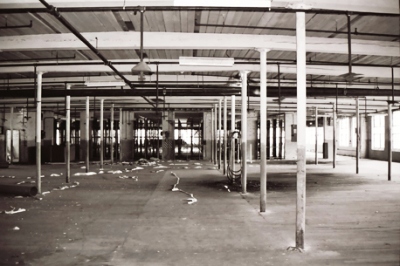
Putting so many poor people in one place worried the mill owners. James Taylor, an associate of William Gregg's, wrote: "Because an effort has been made to collect the poor and unemployed white population into our new factories, fears have arisen that some evil would grow out of the introduction of such establishments among us." When the mills couldn't hire any more of the incoming poor, the owners lamented the continued arrival of the destitute. William Gregg told his stockholder's: "There is a pressure on us all the time for places. We are annoyed all the time with wagon loads of people sent here by neighborhood contributions to get clear of them. In many instances they have been abandoned in inclement weather in our streets, destitute of food and clothing, and we have been obliged to administer to their wants and to send them back to the neighborhood from which they came, with our own teams. Sometimes they come by railroad, a poor woman with four or five helpless children, sent here and the passage paid by charitable people, under the presumption that Graniteville is a sort of charity hospital."
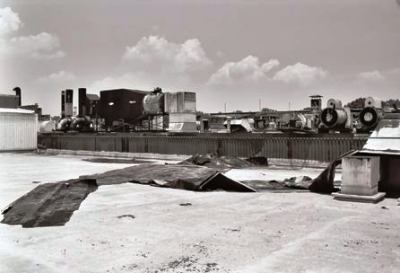
But, even if the mills could be a mixed-blessing, they nonetheless were a source of hope for those who worked and lived in the mill towns. From slavery, to the exploitation of poor whites, and eventually to the providing of a reasonably comfortable income to the middle-class, the mills had followed the course of southern history. Ms. Ollie Whittle: "Everything’s on equal now. Just what they pay the white man or the white woman, they pay to the Negro. Everybody got forty-eight to fifty-two frames now. I don't care if you look like snow or look like black ink. Flesh is flesh, and blood is blood. You go out there and cut a man look like soot and cut one look like snow and put that blood together, you don't know which is the white blood and which is the black, do you? And on top of that, if you don't hire me here, you hire me over yonder. If I don’t work over there, I can come right here and work. And I tell them over there, 'To hell with you man. This ain't no slaveytime. Slave time never will be back here.'" Nor will the time of the great textile mills of Horse Creek Valley.
1 comment:
NOTE: The Cormac McCarthy/Richard Pearce project mentioned above WAS, in fact, completed. McCarthy finished the screenplay in 1976 and the 16mm film, directed by Richard Pearce, was show on PBS. A copy of the screenplay, titled, The Gardener's Son, has now been published, although I do not think the actual movie is available. Hopefully someday the film will re-emerge but, in the meantime, I'll be tracking down the screenplay ASAP.
Post a Comment